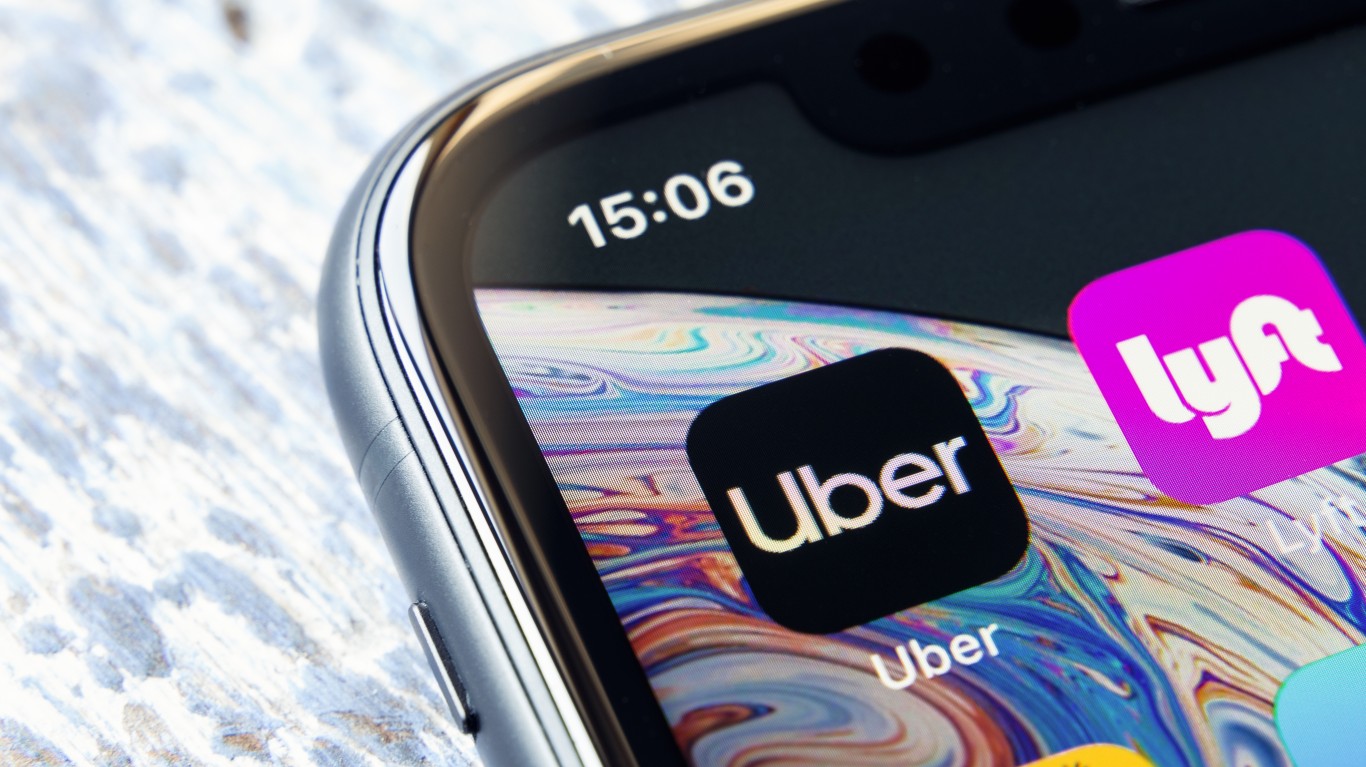Services
What California Win Means for Uber, Lyft and Other Delivery Services

Published:

By a margin of 58.4% to 42.6%, California voters on Tuesday overturned a state law known as AB5 that would have forced Uber Technologies Inc. (NYSE: UBER) and Lyft Inc. (NASDAQ: LYFT), among others, to treat their drivers as regular employees, not contractors. Uber CEO Dara Khosrowshahi said last month that the cost of a ride could rise by 25% to 100% if voters did not reject AB5’s requirement.
Proposition 22 created a specific definition of app-based drivers for companies like Uber and Lyft. Drivers are workers who provide delivery services on an on-demand basis through an online-enabled application or who use a personal vehicle to provide pre-arranged transportation services through an online application. Other workers covered by AB5 were not affected by the passage of Prop 22.
Spending on the ballot measure was the highest ever for any ballot initiative in any state. Uber contributed $51.3 million in cash and $6.1 million in in-kind services to support the initiative. Lyft ponied up $47.5 million in cash and $1.4 million in in-kind contributions. Delivery service DoorDash added $51.3 million in cash and $658,000 in contributed services, and Instacart tossed in $31.3 million in cash and $333,000 in other contributions. Postmates contributed a total of $13.3 million in cash and in-kind contributions. Total spending in support of Prop 22 amounted to $203 million.
Opponents, including the Service Employees International Union, the Teamsters union, the AFL-CIO and the food workers union contributed a total of $19.7 million to defeat the measure.
Both DoorDash and Instacart are candidates for initial public offerings either late this year or in the first half of next year. DoorDash, which filed confidentially for an IPO in February, has raised $2.5 billion in venture capital and is currently valued at around $16 billion. Instacart has received $2.4 billion in venture funding and has a pre-money valuation of $17.7 billion but has not filed for an IPO yet.
In a June survey by analytics firm Second Measure, DoorDash had captured about 45% of the market for app-based food delivery, nearly double the 24% share going to Uber Eats.
Uber posted a new 52-week high of $42.15 shortly after the opening bell Wednesday and traded up about 9.5% at $39.16 at last look. The stock’s 52-week low is $13.71, and the consensus 12-month price target on the stock is $41.74.
Lyft traded up more than 12.5%, at $29.53 in a 52-week range of $14.56 to $54.50. The price target on the stock is $40.36.
Will the passage of Prop 22 speed up DoorDash’s IPO? Will it lead Instacart to file before the end of the year? Stay tuned.
Thank you for reading! Have some feedback for us?
Contact the 24/7 Wall St. editorial team.